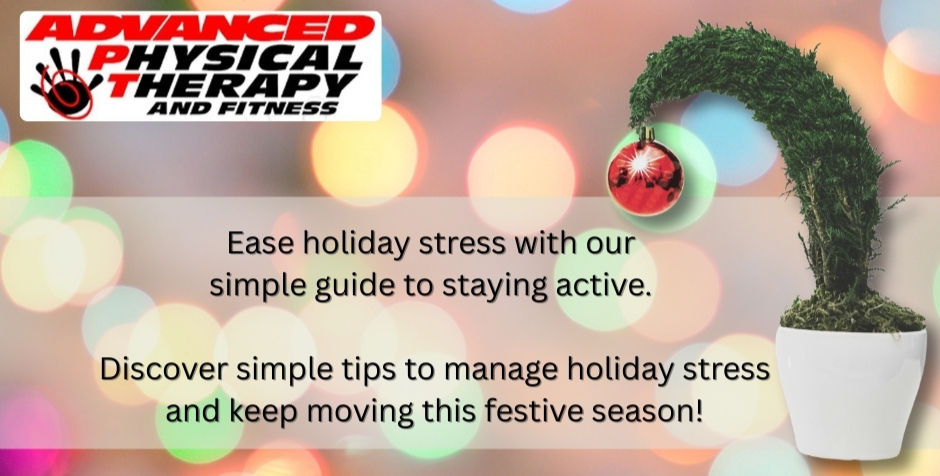Are the Holidays Really Causing Depression?
- Advanced Physical Therapy and Fitness

- Dec 6, 2023
- 3 min read
Originally published December 18, 2013
The holidays are upon us, and with that comes stress, anxiety, and depression—or so it is commonly believed. Most people assume that depression and suicide rates are at their highest around the holidays, but in truth, December has the lowest suicide rates of any month. Unfortunately, it is the period following the holidays that tends to increase depression and suicide rates.

Stress and anxiety may very well be associated with the holiday season, and coping mechanisms can be found here in our blog from last year on stress and the holidays. Depression, on the other hand, is a topic entirely its own. According to the National Institute of Mental Health, depression is a disorder that creates a feeling of sadness or despair that interferes with everyday life. There are various forms of depression, including major depression, dysthymia, minor depression, psychotic depression, postpartum depression, seasonal affective disorder (SAD), and bipolar disorder.
Depression is believed to be caused by a combination of genetic, biological, environmental, and psychological factors. Brain imaging has shown that certain areas of the brain actually look different in those who suffer from depression. These areas include those that control mood, thinking, sleep, appetite, and behavior. Family history and genetics can play a role, but individuals without a family history can still have depression. Often, depressive episodes are triggered by a traumatic or unpleasant event, including losing a loved one or being in a difficult relationship, but episodes can also occur with no known trigger.
Some signs and symptoms listed by the National Institute of Mental Health include:
Persistent sad, anxious, or "empty" feelings
Feelings of hopelessness or pessimism
Feelings of guilt, worthlessness, or helplessness
Irritability, restlessness
Loss of interest in activities or hobbies once pleasurable, including sex
Fatigue and decreased energy
Difficulty concentrating, remembering details, and making decisions
Insomnia, early-morning wakefulness, or excessive sleeping
Overeating or appetite loss
Thoughts of suicide, suicide attempts
Aches or pains, headaches, cramps, or digestive problems that do not ease even with treatment.
Anxiety disorders often accompany depression, as does alcohol and substance abuse. Those who have a serious medical illness (e.g., heart disease, stroke, cancer, HIV/AIDS, diabetes, Parkinson's disease) are likely to have more severe symptoms of both depression and their medical illness.
The sooner depression is diagnosed and treated, the more successful the outcome. Treatment for depression can consist of medications, psychotherapy, and electroconvulsive/other brain stimulation therapies. Antidepressants come with a warning, however, as there may be side effects to this form of medication that actually increases thoughts of suicide. One additional treatment for depression that can be very effective is exercise. Performing cardiovascular exercise for 30 minutes can produce an immediate improvement in your mood similar to taking an antidepressant.
In correlation to the holidays, the reason why depression and suicide are believed to increase following the holidays is due to the fact that the increase in emotional support provided by family or the community during the holidays often abruptly ends once the season is over. This quick increase in loneliness following the holidays may trigger a depressive episode. This is why communication is so important both during and after the holiday season. Reach out to those around you so that they are not lonely during or after the holidays. The most important thing to remember is that you are not alone. There are many people out there who can help if you are going through a period of depression; and if for any reason you begin to have suicidal thoughts, call 911 or the National Suicide Prevention Lifeline at 1-800-273-TALK (8255).
If you have any questions on this topic or any others in which you are interested, feel free to leave any questions, comments, or suggestions. Thank you for reading and stay active.
Resources:
http://www.nimh.nih.gov/health/topics/depression/index.shtml
http://www.med.nyu.edu/content?ChunkIID=156980
http://www.healthline.com/health/depression/holidays
http://www.suicidepreventionlifeline.org/






Comments